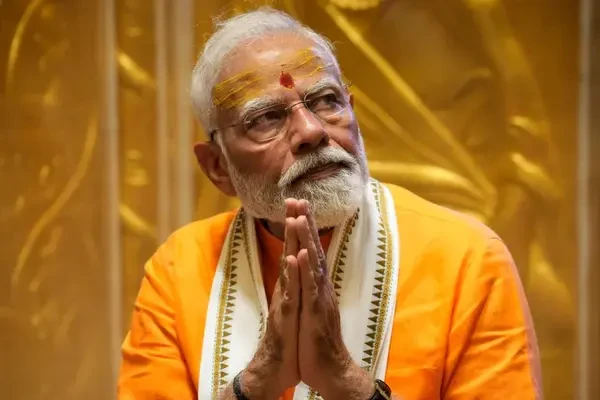Iran’s Plan to Strike Back Against the U.S.
Iran’s Military Preparations Following U.S. Attacks
Loading...

Analysts believe that Modi's ability to adapt to ruling with a smaller majority and potential coalition partners could determine the future of India's government.
Modi has only ruled with strong majorities and centralized power in the past. He and the BJP have claimed to represent a "new India" free from nepotism and corruption, contrasting themselves with family-run opposition parties marked by dishonest practices.
India saw a shift in political power as the BJP lost its majority, prompting a rush to form the next government. Leaders from both the BJP-led NDA and the opposition INDIA alliance gathered in New Delhi to strategize. Despite expectations of a big win for the BJP, the INDIA alliance surprised by winning 232 seats in the Lok Sabha. The BJP remains the largest party with 240 seats but lacks the 272-seat majority. The NDA, with a total of 293 seats, has secured a majority, but Modi must now lead a coalition government, a new experience for him.
Analysts question whether Modi can effectively lead a government relying on other parties. Neelanjan Sircar, a political scientist, noted that Modi's centralized power style is untested in coalition governance. Modi's governance style has always involved strong majorities, so making compromises with allies goes against his cultivated image. Despite past tensions, Modi praised Nitish Kumar for the JD(U)'s success in Bihar, which won 12 seats. The TDP, securing 16 seats, and the JD(U) emphasize their secular beliefs and rely on Muslim voters, differing from BJP's Hindu-centric politics.
Analysts highlight that Modi's image as a bold and decisive leader, prioritizing key policies over politics, has been maintained by his clear majority. Modi rose to fame as Gujarat's chief minister before becoming prime minister, holding power with strong majorities both locally and nationally.
Political analyst Rasheed Kidwai stated that the election outcome has weakened Modi's image, forcing him to consider forming alliances and bringing India back to the era of coalition governments before 2014. Modi now faces challenges negotiating with allies who have specific demands, such as key roles in government. Critics accuse the BJP of causing divisions among allies and opponents.
Analysts believe allies will demand important cabinet positions to stay satisfied, though ministers may not hold much power. Modi must address various groups' demands to maintain a ruling coalition. Nilanjan Mukhopadhyay, a biographer of Modi, stated that Modi needs to adopt a more humble and collaborative personality to succeed in coalition governance.
Kidwai noted that internal divisions within India will be catalysts for change, fundamentally altering the country's political landscape. The BJP has a history of leading coalition governments, unlike the Congress party, which struggled with coalition politics in the 1990s. The BJP effectively led a coalition government with Prime Minister Atal Bihari Vajpayee from 1998 to 2004. Vajpayee's political acumen and ability to work within his party's limitations included diverse individuals in his government, showcasing his greatness as a leader.
Sircar acknowledged the distinct leadership styles of Modi and Vajpayee, noting that Modi has a history of consolidating power. During Modi's early political career, he was photographed alongside Vajpayee visiting relief camps in Gujarat following anti-Muslim riots. Vajpayee advised Modi to treat all members of society equally, without discrimination. Analysts believe Modi may need to learn from Vajpayee's leadership strategies to govern effectively for a third term.
Mukhopadhyay commented that Modi has become a much less impressive person now, and it remains to be seen what kind of leader he truly is without that previous shine.
BMM - MBA
Iran’s Military Preparations Following U.S. Attacks
Troops remain in five strategic locations, raising fears of renewed tensions and long-term occupation.
Opposition forces have taken control of the capital after a significant offensive. Here is how it unravelled.
